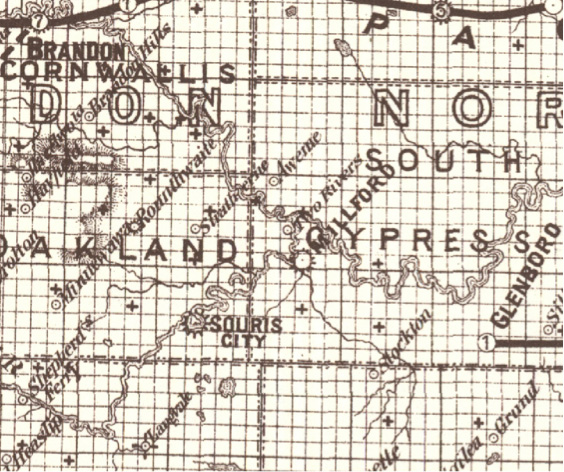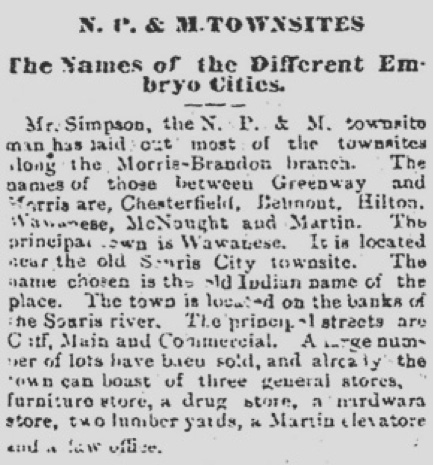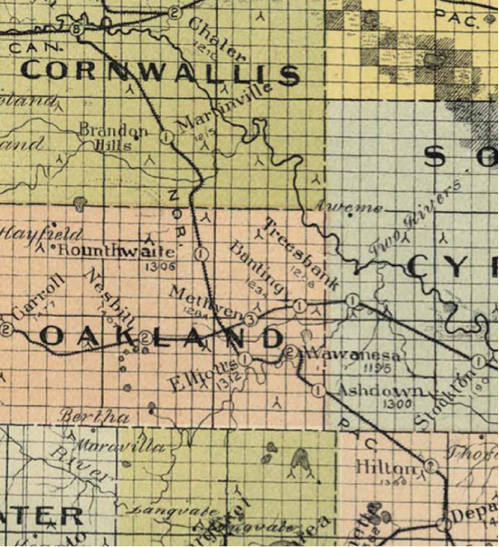Wawanesa is one of numerous
Manitoba towns that had its original location abandoned when a nearby
site was chosen by a railway company. In this case the village of
Souris City, originally surveyed in 1881, had only a short way to
travel. It is also one of dozens of towns that sprang up almost
overnight when a railway station appeared in the middle of a
well-populated farmland.
A map of the region in 1885 would show the modestly well-developed
settlements of Souris City, Rounthwaite and Millford surrounding the
current location of Wawanesa. All had basic services and settlers
turned to these spots for mail and supplies. Trips to Brandon, a day’s
journey north, were necessary for selling grain and buying the more
specialized items. A thriving grist mill operated along the river to
the south by the John Gregory family and a brick yard near Souris City
also were well used by the settlers.

With such services in place the setters turned their attention to
the business of establishing farms while the railway companies just
kept making promises. By the time the current town of Wawanesa appeared
in 1890, the region itself had a long and interesting history.
In the winter of 1889/1990 most of the residents of Souris City used
the river ice to slide their dwellings and business structures a few
kilometres northwards to the newly created townsite of Wawanesa. In a
few short months the little village nestled attractively in a deep wide
bend of the Souris River sprang fully-fledged into being.

In the early years of the twentieth century Wawanesa consolidated its
position as the primary trading centre for the region while to the
east, Treesbank, and to the west, Nesbitt also prospered. Nearby
Methven and Rounthwaite remained smaller service centres.

As Wawanesa looks forward to the century ahead it has taken steps to
preserved important aspects of its past, including the preservation of
the original Wawanesa Mutual Office as a Provincially Designated
Heritage Site housing the Sipiweski Museum. Among the museums
exhibits are important collections relating to “The Mutual” and to
Nellie McLung who grew up nearby and was married in the local church.
|



